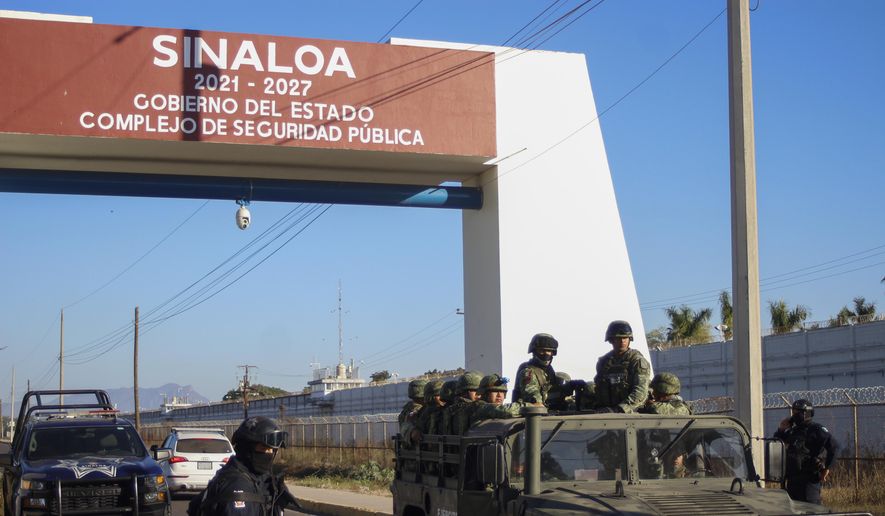Sinaloa Cartel members in Mexico may be pulling back on fentanyl production as the U.S. and Mexico work to thwart the deadly drug and prosecute family members of imprisoned kingpin Joaquin “El Chapo” Guzman.
The Sinaloa Cartel and the Jalisco New Generation Cartel are considered the top criminal drug threats to the U.S. because of their role in converting chemicals from China into deadly fentanyl, which is pressed into pills and consumed by unsuspecting Americans who overdose and die.
Earlier this month, about a dozen banners calling for a fentanyl ban were hung from overpasses, billboards and construction sites in Culiacan, the capital and largest city in the state of Sinaloa, according to The Wall Street Journal.
“In Sinaloa, the sale, manufacture, transport or any kind of business involving the substance known as fentanyl, including the sale of chemical products for its elaboration, is permanently banned,” the banners said in Spanish. “You have been warned. Sincerely yours, the Chapitos.”
“Chapitos” is the moniker for the sons of El Chapo, who took over Sinaloa operations after he was captured.
It is unclear whether Sinaloa’s calls to curb production amount to a public relations ploy or a genuine attempt to back away from fentanyl, a powerful synthetic opioid, as the Biden administration and Mexican government coordinate a crackdown.
The Department of Justice earlier this year announced the indictment and extradition of El Chapo’s son, Ovidio Guzman Lopez, and the Treasury has imposed sanctions on entities involved in fentanyl production.
Local prosecutors weren’t sure who hung up the roadside banners, which were machine-printed, according to wire reports.
The Journal report quoted a former Sinaloa cartel member as saying the pivot is an attempt to put the heat on the Jalisco cartel, a chief rival, though it also quoted U.S. officials as saying there was no indication that Sinaloa would stop fentanyl production.
“Drug cartels engage in murder and kidnapping, traffic immigrants and corrupt government officials,” Keith Humphreys, a Stanford University professor who tracks the overdose issue, told The Washington Times. “Their word isn’t worth two pesos.”
Still, any relief from the fentanyl scourge would be welcomed by U.S. officials.
Drug overdoses kill more than 100,000 Americans per year, and fentanyl is linked to at least two-thirds of those deaths.
Some Republican lawmakers and candidates for president have called for using military force to stop the cartels in Mexico, saying the U.S. must take care of the problem if the Mexican government is unwilling or unable to do so.
The Biden administration is trying a collaborative approach. Mr. Biden focused on fentanyl during a North American summit earlier this year, and Secretary of State Antony Blinken and Mexican President Andres Manuel Lopez Obrador met in Mexico City this month — around the time the cartel banners appeared in Sinaloa.
“Secretary Blinken expressed the United States’ gratitude for Mexico’s efforts that led to the September 15 extradition of Ovidio Guzman Lopez while encouraging continued cooperation grounded in our shared respect for the rule of law,” according to a State Department readout of the meeting.
“Secretary Blinken and President Lopez Obrador also discussed the challenges presented by irregular migration and synthetic fentanyl and our efforts to address them,” State said.
• Tom Howell Jr. can be reached at thowell@washingtontimes.com.




Please read our comment policy before commenting.